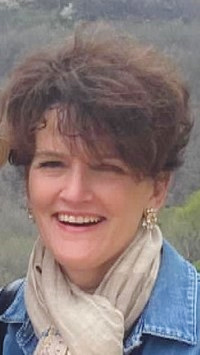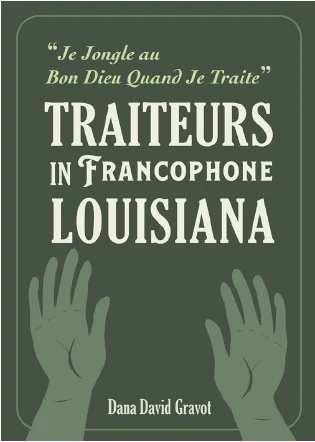Dana David Gravot

Dana David Gravot received a PhD in Francophone Studies from the University of Louisiana at Lafayette in 2000. She has conducted extensive research with faith healers in her native Louisiana and has collected linguistic data for the Dictionary of Louisiana French. A member of the National Coalition of Independent Scholars, she was awarded the Blanton Owen Award through the Library of Congress’s American Folklife Center to continue research into herbal and home remedies used by treaters.
Schedule
11:30 am to 12:30 pm
Capitol Park Museum, Auditorium
Louisiana Traditions: Subsistence and Healing
with Dana David Gravot, Helen A. Regis, and moderator Robert Mann
12:45 pm to 1:30 pm
Cavalier House Books Tent
Book Signing

“Je jongle au Bon Dieu quand je traite”: Traiteurs in Francophone Louisiana